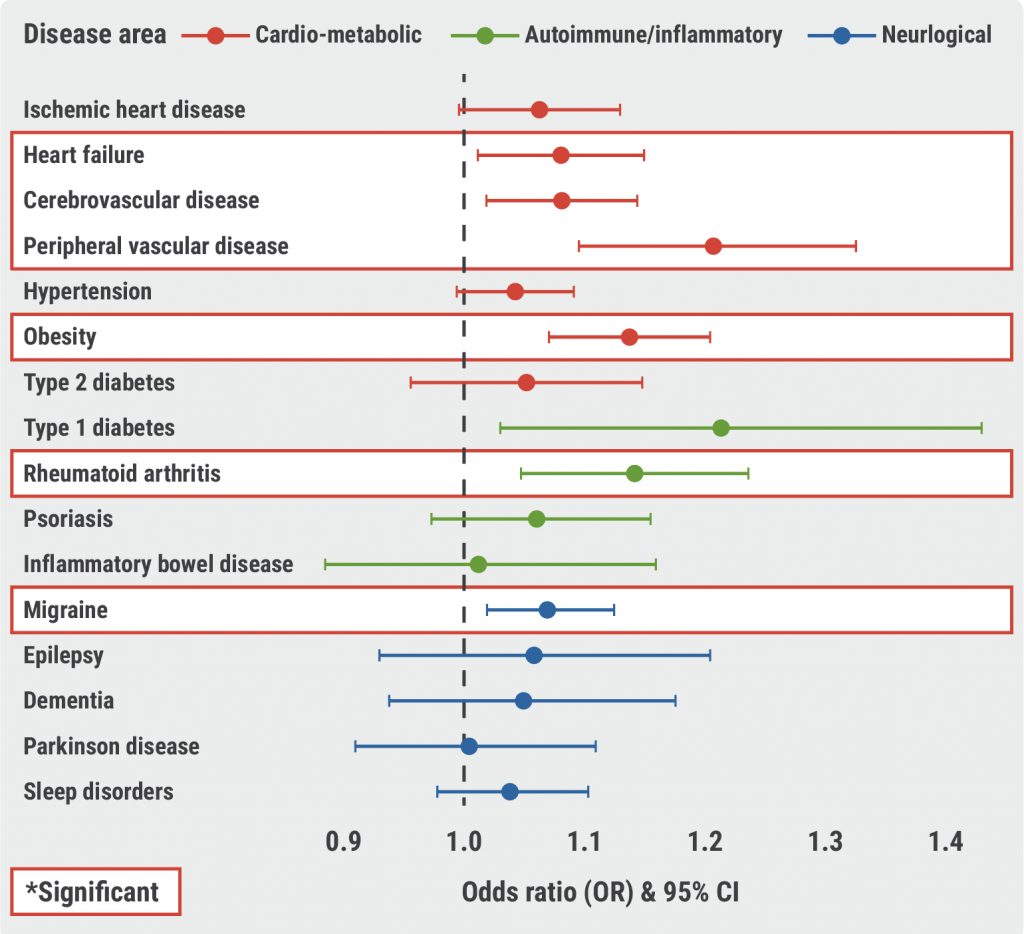There is no clear definition of broad-spectrum micronutrients. “Typically, it contains a combination of different vitamins and minerals, combined with botanicals, amino acids, and fatty acids,” explained Dr Alexander Häge (ZI Mannheim, Germany) [1].
The rationale for using broad-spectrum micronutrients in psychiatry is that they serve as co-enzymes for the synthesis, uptake, and breakdown of neurotransmitters, and they are required as co-factors in the energy metabolism of neurons. Adding micronutrients could either restore an inborn metabolic dysfunction or correct the effects of malabsorption due to gastrointestinal inflammation, microbiome composition, or mitochondria dysfunction, which can lead to reduced energy metabolism of neurons and glial cells [2,3].
“There is a hype concerning the consumption of vitamins and minerals,” Dr Häge said. Although some studies investigating micronutrients for the treatment of psychiatric disorders, such as impulsivity, inattention, and hyperactivity, and other mental health issues, such as mood and stress, have reported positive effects, the evidence is still limited. Studies in children and adolescents have mainly been open-label retrospective database analyses, case reports, and patient preference studies. Furthermore, a large variability in ingredients and doses was used across studies. Double-blind, placebo-controlled studies with micronutrients in both adults and children showed some improvements but no group differences in attention-deficit/hyperactivity disorder (ADHD) symptomatology. It is quite difficult to draw any conclusions from these studies [4,5].
Dr Häge briefly discussed the VANTASTIC study, a randomised double-blind trial in 180 children and adolescents with high levels of impulsivity and irritability. The primary outcome measure is the response rate at the end of the placebo-controlled phase, and completion is scheduled for September 2022.
- Häge A. Broad spectrum micronutrients to treat psychiatric symptoms in children and adolescents – hype or hope? S.03.01. ECNP Congress 2020.
- Rucklidge JJ & Kaplan BJ. Expert Rev Neurother. 2013 Jan;13(1):49-73.
- Rucklidge JJ & Kaplan BJ. CNS Drugs. 2014 Sep;28(9):775-85.
- Rucklidge JJ, et al. J Child Psychol Psychiatry. 2018 Mar;59(3):232-246.
- Rucklidge JJ, et al. Br J Psychiatry. 2014;204:306-31.
Posted on
Previous Article
« Altered gene expression of endogenous opioid system after alcohol exposure in adolescent rodents Next Article
The gut-brain axis and obesity »
« Altered gene expression of endogenous opioid system after alcohol exposure in adolescent rodents Next Article
The gut-brain axis and obesity »
Table of Contents: ECNP 2020
Featured articles
Psychosis and Schizophrenia
Prognostic tools in the management of clinical high risk for psychosis
Reduced auditory cortex activation during speech perception in patients with schizophrenia
Dementia
Predicting MCI and dementia by assessing worrying about memory
Genomics of vascular dementia and stroke
Bipolar Disorders
Social media and bipolar disorder: a risky combination
How to prevent the onset and first relapse of bipolar disorders?
Seasonal pattern and bipolar disorder
OCD and Depression
Personalised medicine in depression: a realistic way forward?
Heart rate could be a potential biomarker for depression
Listening to Mozart has a beneficial effect on epilepsy
Mental Health
Mental health during the COVID-19 pandemic
Microdosing psychedelics offers perspective but needs further evaluation
The PRISM project: focusing on biological parameters across neuropsychiatric disorders
Smartphone can support personalised medicine in psychiatry
Baby’s heart rate shows stress if their mother is depressed or anxious
Autism and ADHD
Movement computing promising in analysing motor impairment in children with autism spectrum disorder
Screening with ADHD Self-Report accurate in girls
No altered fractional anisotropy in ADHD
Role of the Microbiome
Micronutrient supplementation as treatment for psychiatric symptoms
Substance Abuse
Altered gene expression of endogenous opioid system after alcohol exposure in adolescent rodents
Subgroups in alcohol use disorder based on externalising symptoms
New drugs for alcohol use disorder to focus on combination therapy
Related Articles
November 2, 2020
Predicting MCI and dementia by assessing worrying about memory

November 26, 2021
Somatic comorbidities of ADHD: epidemiological and genetic data
February 9, 2022
Biomarker in platelets may pinpoint depression, treatment response
© 2024 Medicom Medical Publishers. All rights reserved. Terms and Conditions | Privacy Policy
HEAD OFFICE
Laarderhoogtweg 25
1101 EB Amsterdam
The Netherlands
T: +31 85 4012 560
E: publishers@medicom-publishers.com

